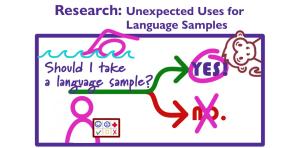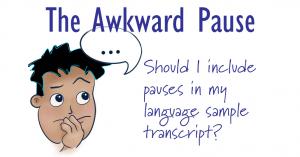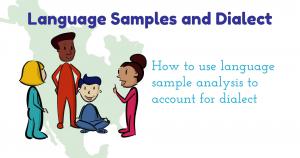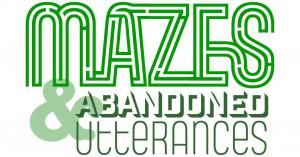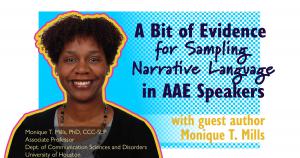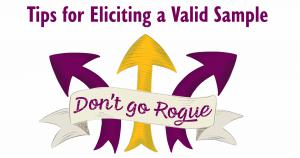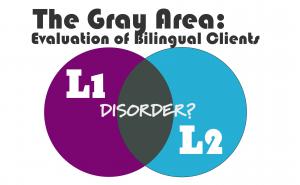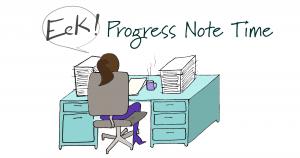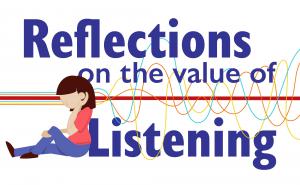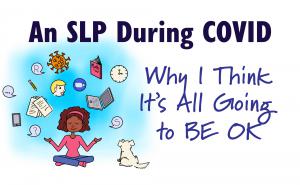-
Research: Unexpected Uses for Language Samples
Dec 01 20210From toddlers with cochlear implants to adults with primary progressive aphasia (and everything in between), SALT has been part of researching people’s spoken language. Oh, and apes’ too! One of my great joys is consulting with researchers from Communication Sciences and Disorders, Psychology, Linguistics, Neuroscience, Ed Psych and more and finding out their research interests to determine how...
-
The Awkward Pause
Jun 02 2021Should I include pauses in my transcript? The Awkward Pause! We’ve all been there. Maybe the awkward pause was during a casual conversation with a friend, or when you were talking to someone new at a party and ran out of interesting things to say. Pragmatically, we feel compelled to fill that pause with something! Part of learning to take great language samples is overcoming our fear of the aw...
-
Language Samples and Dialect
Apr 20 2021Background The way we talk is a window into who we are, where we came from, and how others perceive us. When I moved to the Pacific Northwest (PNW) the locals thought I had an accent. Some vocabulary words are different in the PNW. I had one student tell me about going out on his quad and I had no idea what he was talking about. In the Midwest, where I am from, a “quad” is called a “fo...
-
Mazes and Abandoned Utterances: Why They Matter
Feb 26 2021You may have noticed that some methods of language sample analysis ask you to include mazes in transcription, while others do not. SALT does ask you to include mazes. Have you ever wondered why? Perhaps you had the sneaking suspicion that, if some protocols exclude mazes, they can’t really be that important. And, after all, including them makes transcription longer and more complex, so there ha...
-
A Bit of Evidence for Sampling Narrative Language in AAE Speakers
Feb 02 2021Dear Clinical Colleagues, I hope this finds you relatively safe and sane. Language sample analysis may be a challenge to your limited time and resources. Don’t you wish you COULD fit language sampling into your busy schedule? After all, language sampling is part of the “gold standard” for assessing language in monolingual and bilingual children. After you collect a language sample, you ca...
-
It Makes a Difference: Tips for Eliciting a Valid Sample That Doesn’t Go Rogue!
Jan 29 2021Dressed in my “clinic outfit” in the modest room with the oversized two-way mirror, I’m ready to record. I have been instructed to elicit a conversational language sample from my client. My supervisor is behind that mirror. How hard can it be to get this child to talk with me? What I thought would be the easiest part of the session turned out to be a lot harder than I expected. What was s...
-
The Gray Area: Evaluation of Bilingual Clients
Jan 28 2021As SLPs we are responsible for assessing all learners who may potentially have a language disorder and of course this includes students with culturally and linguistically diverse backgrounds. In my own clinical practice as school-based SLP, I have to admit that when I hear about an upcoming evaluation of a bilingual student, I get a nervous. It’s overwhelming and a huge responsibility. We need ...
-
Eek! Progress Note Time
Jan 28 2021We just wrapped up the second trimester at school and I finished writing out progress notes for nearly 60 kids on caseload, all of whom have multiple goals on which to report. Every trimester I’m a little daunted by the fact that I have to write progress notes on top of managing therapy sessions, evals and IEPs - it’s another thing to get done. I need to be pretty focused if I’m going to ever g...
-
Reflections on the Value of Listening
Jan 28 2021How SALT Evolved Since the first version of SALT software in 1981, before we even had a name for it, our focus was on how to coax a computer to carry out as much of the labor of language sample analysis (LSA) as possible. The idea was to reduce the encumbrance of some of the steps, leaving clinicians with more time for interpreting the results. Over the years, SALT has worked to improve the con...
-
An SLP in the Age of COVID: Why I Think It’s All Going to Be OK
Jan 28 2021This has been a challenging fall to say the least. We have all been thrown into remote learning or a hybrid version of school. Tensions are high among parents wanting their kids back in school and teachers wanting to be back in school as well. But no one wants to contract COVID. Most of us are still figuring out what all of this means for our day-to-day practice. As I reflect on the first month...

